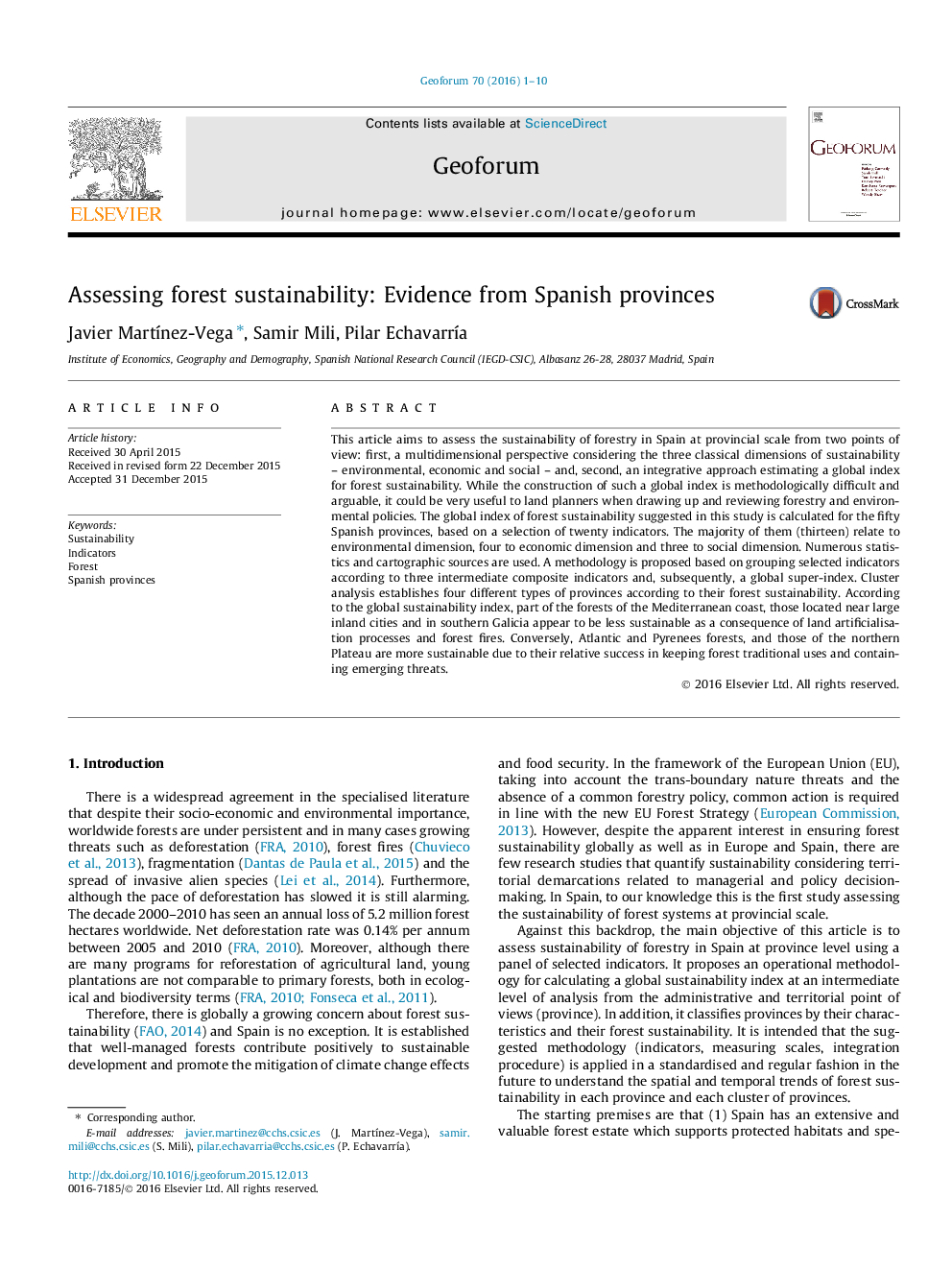| Article ID | Journal | Published Year | Pages | File Type |
|---|---|---|---|---|
| 5073386 | Geoforum | 2016 | 10 Pages |
Abstract
This article aims to assess the sustainability of forestry in Spain at provincial scale from two points of view: first, a multidimensional perspective considering the three classical dimensions of sustainability - environmental, economic and social - and, second, an integrative approach estimating a global index for forest sustainability. While the construction of such a global index is methodologically difficult and arguable, it could be very useful to land planners when drawing up and reviewing forestry and environmental policies. The global index of forest sustainability suggested in this study is calculated for the fifty Spanish provinces, based on a selection of twenty indicators. The majority of them (thirteen) relate to environmental dimension, four to economic dimension and three to social dimension. Numerous statistics and cartographic sources are used. A methodology is proposed based on grouping selected indicators according to three intermediate composite indicators and, subsequently, a global super-index. Cluster analysis establishes four different types of provinces according to their forest sustainability. According to the global sustainability index, part of the forests of the Mediterranean coast, those located near large inland cities and in southern Galicia appear to be less sustainable as a consequence of land artificialisation processes and forest fires. Conversely, Atlantic and Pyrenees forests, and those of the northern Plateau are more sustainable due to their relative success in keeping forest traditional uses and containing emerging threats.
Related Topics
Social Sciences and Humanities
Economics, Econometrics and Finance
Economics and Econometrics
Authors
Javier MartÃnez-Vega, Samir Mili, Pilar EchavarrÃa,
